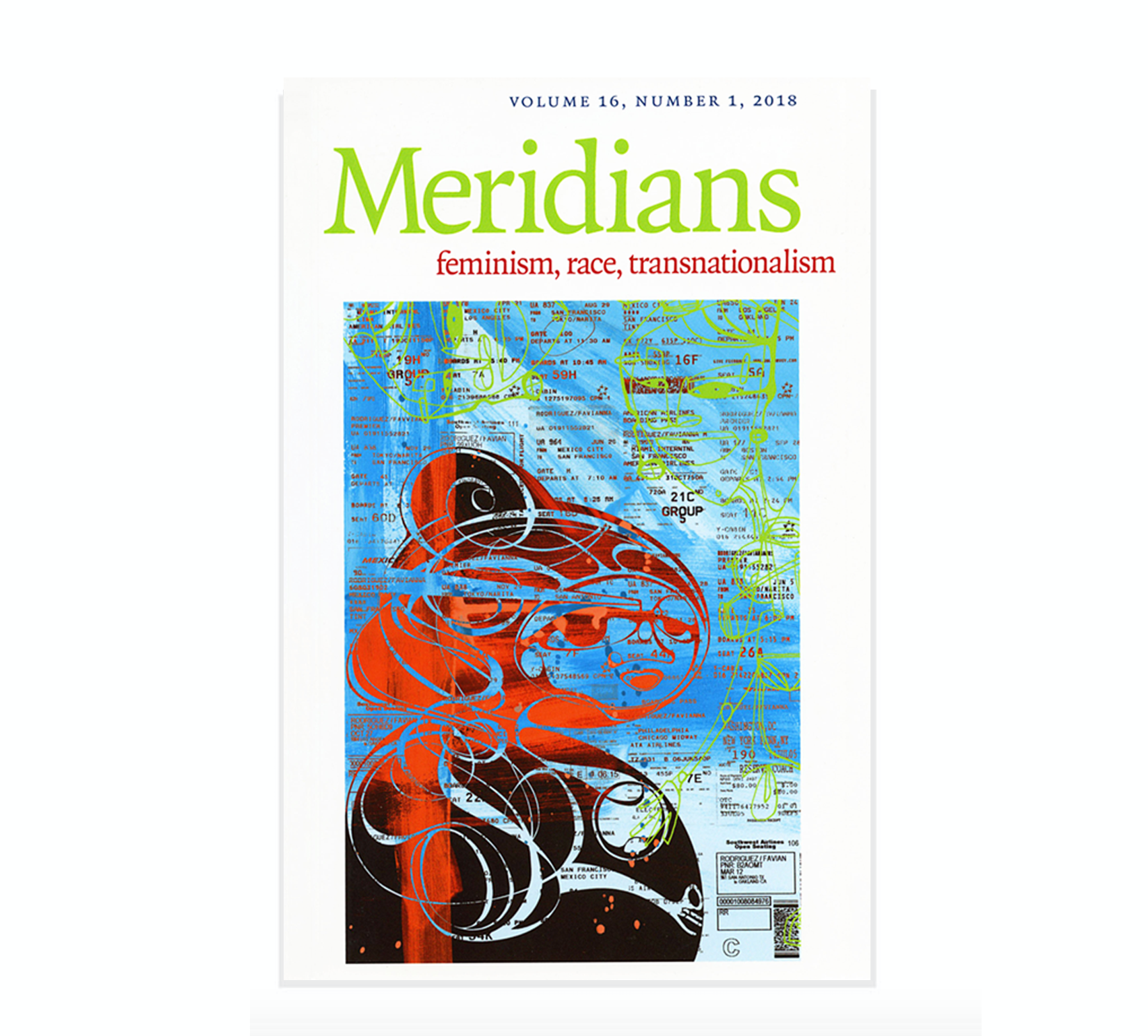
Writing
Academic Journals
View Articles

The Sway of Stigma: The Politics and Poetics of AIDS Representation in Le président a-t-il le SIDA? and Spirit of Haiti
Small Axe: A Caribbean Journal of Criticism, 2011
This essay explores the poetics and the politics of AIDS representation in the Haitian context through an examination of Arnold Antonin's film Le president a-t-il le SIDA? (Does the President Have AIDS?; 2006) and Myriam J. A. Chancy's novel Spirit of Haiti (2003). Drawing on the insights of queer theory, the author argue that the hyperconsciousness of stigma in the Haitian context imposes limits on the imaginings of AIDS in cultural production; thus even as artists enter into their representation with overtly political intentions, they are unwittingly enmeshed in prevailing discourses and narratives of stigma in areas such as gender, sexuality, and religious practice.

Naming, Claiming, and Framing Marie Chauvet
Meridians, 2018
This essay offers a metacritical reading of the discourses surrounding Haitian author Marie Chauvet (1916–1973). I argue that paying attention to the naming (how she is described), claiming (how scholars and authors define their investment in her work), and framing (how her work is analyzed by scholars) of Chauvet reveals a dominant discourse that influences our study of the author. Taking a feminist approach to the interpretations of her work, I argue that ultimately these Chauvet narratives reveal more about anxieties surrounding gender than they do about her body of work.

Beyond Truth and Reconciliation in La Mémoire aux abois and Un alligator nommé Rosa
French Forum, 2013
Un peuple sans mémoire ou démémoiré est condamné à répéter les mêmes erreurs, à subir les mêmes dictatures du passé.
-Franck Laraque
The familiar adage that truth is stranger than fiction came to life in January of 2011 when former dictator Jean-Claude "Baby Doc" Duvalier landed in Port-au-Prince after nearly twenty-five years in exile. The teledjol kicked into intense overdrive as people speculated about the nature of this controversial return to the native land. Why did Duvalier return? Would he face justice for human rights abuses committed during the regime, which spanned two generations? A press statement announced that the purpose of this audacious homecoming was an innocuous act of solidarity: his desire to celebrate the anniversary of the earthquake in the company of his countrymen and women…

Toward a Victim-Survivor Narrative: Rape and Form in Yvonne Vera's Under the Tongue and Calixthe Beyala's Tu t'appelleras Tanga
Research in African Literatures, 2014
This essay examines the representation of rape in Yvonne Vera’s Under the Tongue and Calixthe Beyala’s Tu t’appelleras Tanga, arguing for the term “victim-survivor” as a conceptual frame for analyzing the experience of violated protagonists. By positing the “victim-survivor narrative” as a form that grapples with the multiple responses to and experiences with rape, as well as the different ways they figure on cultural production, this essay moves beyond the extant analyses in rape cultural criticism and trauma studies. My discussion critiques the ways in which models from trauma studies and rape crisis intervention fall short in accounting for the complexity of African experiences with sexual violence. To do so, I challenge the dominance of the rape survivor model, offer victim-survivor in its stead, and subsequently demonstrate its efficacy as a way to analyze rape that accounts for the female protagonists’ multiple locations and subjectivities in Beyala’s and Vera’s novels.

Trauma Lost in Translation: Teaching Gisèle Pineau’s L’espérance-macadam / Macadam Dreams
Callaloo, 2014
Gisèle Pineau's novel L'espérance-macadam / Macadam Dreams is a work of trauma fic- tion that chases and charts the gaping chasm between experience and event in the wake of repressed sexual violence. This relationship between experience and event lies at the core of the conceptualization of trauma and reflects the intersection of knowing and not knowing mentioned in the epigraph of this essay. Contemporary trauma theory has rou- tinely identified its representation as a fraught act of translation unto itself.1 Caribbean literature has long been preoccupied with representing traumatic events whether in the violence of the Atlantic slave trade, slavery and colonialism, or patterns of political and familial violence. When we consider the inexpressibility and incommunicability of pain often explored in these contexts, to express the psychic trauma that results from physical violation complicates the process of narrative creation. At the same time, as Toni Morrison has eloquently argued, speaking the unspoken adds depth and power to these literatures of trauma. As Laura DiPrete explains, "the literature of trauma, bearing witness to the voice, the remembered and the forgotten, the known and the unknown . . . is frequently a double telling"

Rethinking paradox: Performing the politics of gender, race, and belonging in Léonora Miano's Ecrits pour la parole
Journal of Romance Studies, 2014
This article argues that Léonora Miano’s play Ecrits pour la parole (2012) moves beyond the concept of paradox that has characterized critical work on Black France. Instead, Miano focuses on duality, responding to and rejecting anti-Black racism in specifically gendered ways evident in her combination of feminist and human rights discourses. The play enters into these discourses through the use of the monologue in particular….

Perceiving the Relationships in Nature: An Ecofeminist Reading of La Légende des Fleurs
Marie Vieux Chauvet’s Theatres, 2019
Like the changeable rose, Caribbean flowers can be used for botanical, literary , and political effects the original gardeners never foresaw, and for centuries women of color have drawn on flowers and sexuality for their own purposes.

Nou pa gen vizibilite: Haitian Girlhood beyond the Logics of Visibility
The Black Scholar, 2020
In Why Haiti Needs New Narratives Gina Ulysse discusses how the logics of (in)visibility intersect with gender in paradoxical ways. “The world has watched Haiti’s most vulnerable women survive quake, flood, cholera and homelessness…yet those women still feel invisible. What will it take for them to be seen and heard? ‘Nou pa gen visibilite.’ We don’t have visibility, Mary-Kettley Jean said…Her words are ironic…”
